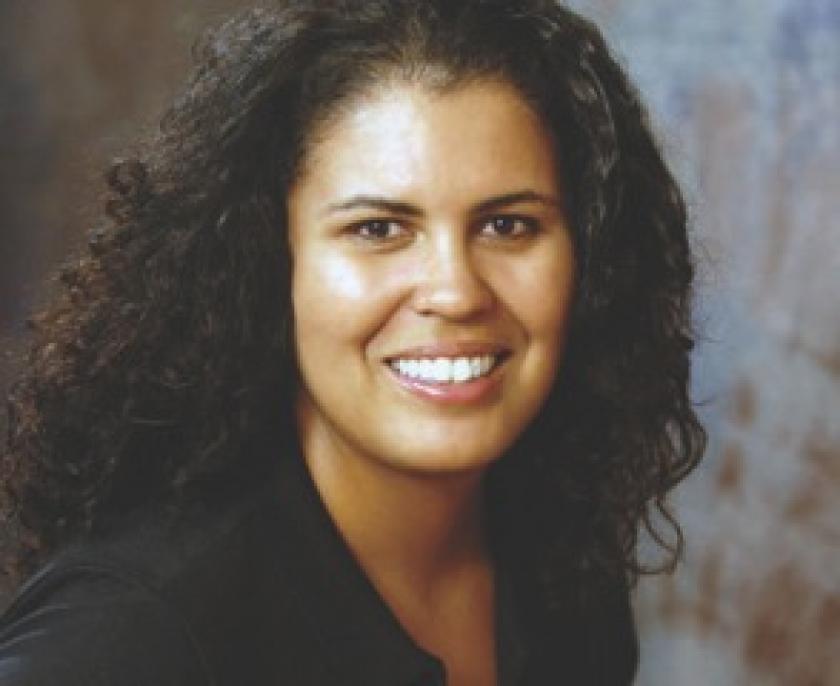
 Safiya Noble (MS ’09, PhD ’12), GSLIS
alumna and assistant professor of African-American Studies at Illinois, has
been named an affiliated faculty
member of GSLIS.
Safiya Noble (MS ’09, PhD ’12), GSLIS
alumna and assistant professor of African-American Studies at Illinois, has
been named an affiliated faculty
member of GSLIS.
Noble’s research interests include the socio-cultural, economic, and ethical implications of information with a specific focus on the intersection of race, gender, and technology. Noble found her way to academia after a twelve-year professional career in multicultural marketing and advertising, during which she was invested in building corporate brands and selling products and services to African-Americans and Latinos.
“I believed, like many urban marketing professionals, that companies must pay attention to the needs of people of color and demonstrate consumer respect by offering valuable services and resources in our communities as is done for most everyone else,” said Noble.
Her dissertation, "Searching for Black Girls: Old Traditions in New Media," grew out of her own experience with a major brand. In 2010, while using Google to find appropriate content for her stepdaughters and nieces, she was overwhelmed not only by the amount of explicit content that resulted from a keyword search of “black girls” but also by the fact that these results were the very first hits that appeared.
“Since that time, I have spent a lot of time thinking about all the ways in which it could be that the genius of Google could implode when it comes to providing reliable or credible information about women and people of color—especially Black women and girls, but certainly all women who are primarily depicted pornographically on the first page of search results using Google’s default settings,” she said.
While pursing her doctorate at GSLIS, Noble was an Information in Society fellow, funded by IMLS and GSLIS, under the direction of Professors Dan Schiller and Linda Smith. This program was designed to prepare future faculty, and Noble found the experience to be incredibly beneficial in her preparation for the academic job market. Indeed, after completing her degree, Noble earned a tenure-track position as an assistant professor in the Department of African-American Studies at the University of Illinois. She also holds faculty affiliations in the Department of Gender and Women’s Studies and the Center for Writing Studies. Her interdisciplinary work brings together research and scholars from library and information science, gender and women’s studies, information technology, and ethnic studies.
“Although it takes more effort to work across domains, I feel energized by it. I have found that interdisciplinary scholarship means that I have to know how to speak with knowledge and credibility to information scientists, computer scientists, programmers and the like, although often, they are not expected to be versed at all in cultural studies, feminism, or critical theory,” said Noble. “The challenges of interdisciplinarity in my research means that I have to know more and do more to make my work understood, with less effort put forward in the direction of the social sciences I draw from theoretically. Earning a Ph.D. from GSLIS taught me a lot about how to be effective in these ways.”
Noble feels she also owes her success to her mother, who as a single mother raised Noble while often working more than one job.
“My highest aspiration as a child was to go to college, because it was the thing that my mother wanted so badly for herself but was unable to do,” Noble said. “She came of age in the 50s, and my grandfather would not let her go to college. Coming back to complete a Ph.D. later in life is the fulfillment of a goal I've wanted to accomplish for a long time. At this point in life, I hope to carve out a meaningful career in the academy, while also contributing to my community and the public-at-large with scholarship that matters.”